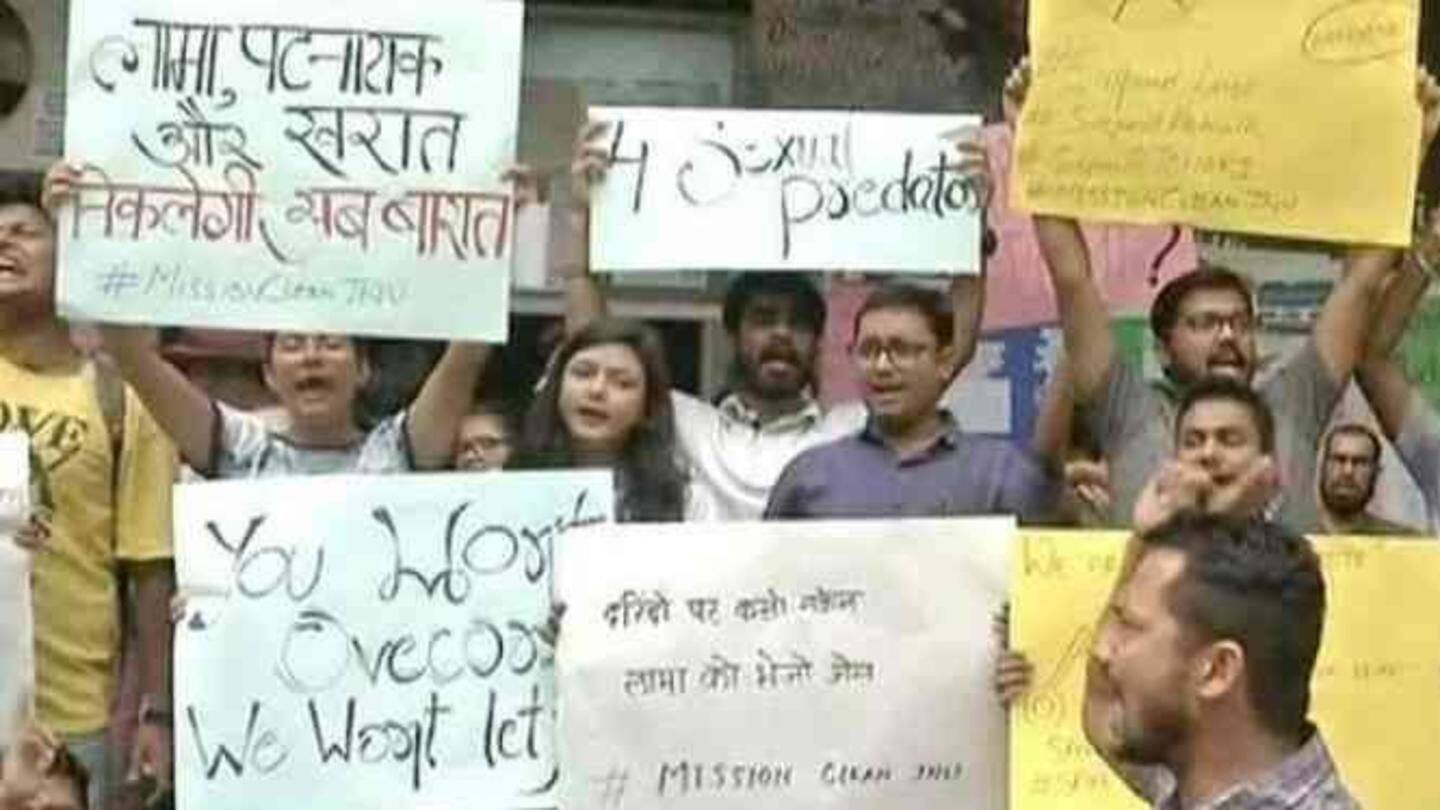
JNU professors accused of sexual-harassment get clean chit
What's the story
JNU's Internal Complaints Committee (ICC), has cleared professors Mahendra P Lama and Rajesh Kharat of sexual harassment charges and instead issued warnings against complainants for 'advertising' the issue, IE reports. Lama and Kharat were named together in two different complaints of sexual harassment and the internal body concluded they weren't guilty. Notably, the recommendations for complainants came in identical paragraphs.
The cases
Complaints against professors were filed in January, 2018
The first complaint alleged the incident took place in 2013, and the second one took place in 2017. The complaints in both the cases were filed in January this year. The probe reports for the first and second complaints were submitted on June 29 and July 25 respectively. But the ICC didn't find any proof of sexual harassment in the cases.
The report
Lama wanted his students to perform better, concludes ICC
About the 2013 complaint, the ICC noted that Lama, a professor at the Centre for South Asian Studies, was a strict teacher. Him pushing students to work harder can't be termed as sexual harassment. The report added the complainant developed 'Lama phobia' on the basis of rumor, which triggered the complaint. Further, ICC concluded Kharat didn't maintain records properly, but that can't be called harassment.
Reaction
Cleared of charges, Lama says the case was frivolous
Regarding the 2017 complaint, the ICC observed there was an administrative lapse on Lama's part for denying the complainant NOC for changing the supervisor. Further, it held Kharat responsible for not discussing the complainant's application in a faculty meeting. Speaking about the investigation, Lama said, "It was a frivolous case lodged by non-performing students in collaboration with non-performing teachers." ICC's presiding officer didn't comment.
The warning
Professors let off, but students warned against 'public propaganda'
While the professors were given clean chit, the complainants were advised against 'advertising' the issue in future. "It was observed during the proceedings that the complainant herself was advertising about her complaint on her Facebook and through other electronic media and informed the public at large," ICC observed. ICC claimed this jeopardized the inquiry, and 'public propaganda' affected the institution.